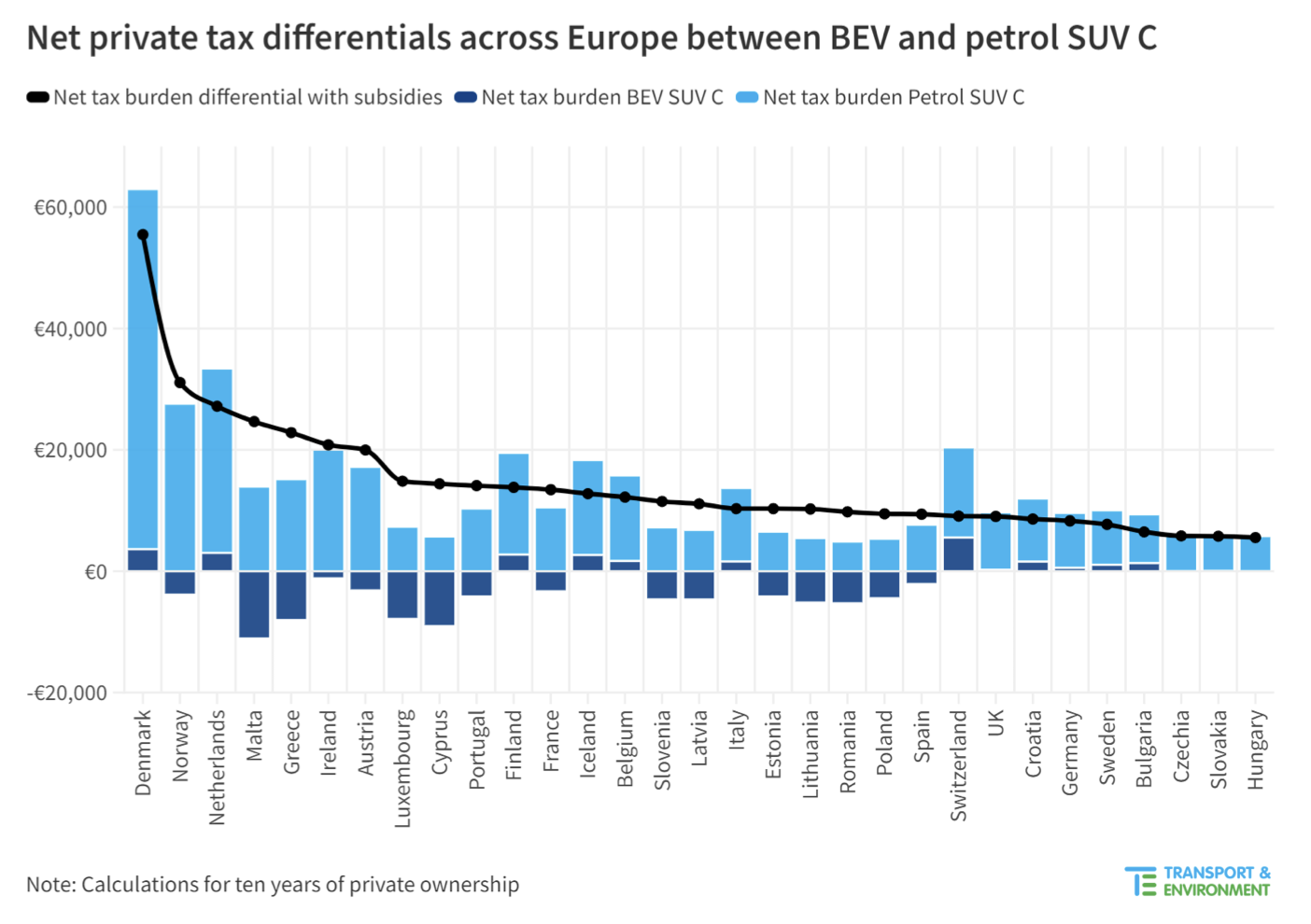How the UK can boost EV adoption through taxation

T&E’s analysis, part of the newly launched Good Tax Guide tool, compares the UK’s car taxation system, including acquisition, ownership, and company car taxes, as well as energy, fuel, and depreciation taxes, against those of other European countries. The findings highlight a considerable gap in the UK’s efforts to promote electric vehicles. Despite the negligible tax burden for privately owned BEVs, the UK’s overall car tax burden places it unfavourably in the rankings when comparing BEVs to petrol vehicles, with a particularly poor showing for BEV SUVs versus petrol SUVs. The situation is expected to worsen by 2025 with changes to the Vehicle Excise Duty (VED) that will equate the tax for BEVs with that of petrol cars.
VED, encompassing acquisition tax (first-year VED) and ownership tax (annual VED from the second year), stands out as a key area for potential reform. Currently, the system offers a £0 acquisition tax for BEVs in an attempt to incentivise electric vehicle purchases. However, this measure falls short as the tax differential between BEVs and petrol cars is too minimal to significantly influence consumer decisions.
T&E recommends a reformed taxation strategy that imposes higher taxes on more polluting vehicles. This approach could serve as an equitable method to steer consumer choices towards environmentally friendly options while replacing lost fuel duty revenue and primarily impacting those in higher income brackets more likely to purchase new cars. Furthermore, introducing acquisition taxes on Plug-in Hybrid Electric Vehicles (PHEVs), which currently escape such taxes despite their higher real-world emissions, could align the UK’s tax system more closely with its environmental objectives.
The analysis suggests that the UK could learn from the taxation models of countries like France, the Netherlands, Norway, and Portugal, where acquisition taxes are more closely linked to CO2 emissions. Adopting a similar stance towards higher-emitting vehicles could significantly help the UK in bridging the gap between its environmental ambitions and the current state of affairs.
The urgency for the UK to overhaul its car taxation system is clear. As T&E’s report compellingly argues, the country has a significant opportunity to exploit taxation as a powerful tool in the fight against climate change. By adjusting its tax policies to more effectively promote the adoption of eco-friendly vehicles, the UK has the potential not only to catch up with its European peers but also to assume a leadership role in the global transition to sustainable transportation. The path forward requires decisive action and innovative policymaking to pave the way for a greener future.
Source: Reforming UK car taxation | Transport & Environment



